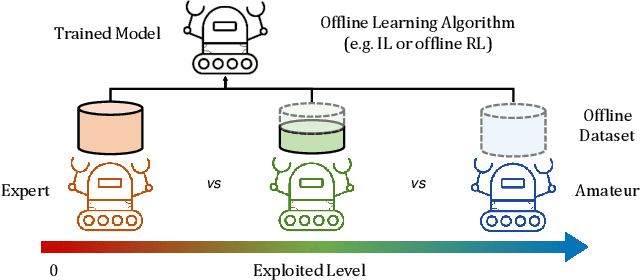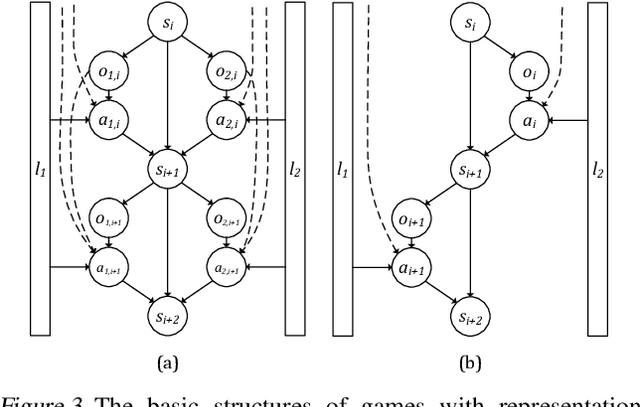Linjing Li
Spec-o3: A Tool-Augmented Vision-Language Agent for Rare Celestial Object Candidate Vetting via Automated Spectral Inspection
Jan 10, 2026Abstract:Due to the limited generalization and interpretability of deep learning classifiers, The final vetting of rare celestial object candidates still relies on expert visual inspection--a manually intensive process. In this process, astronomers leverage specialized tools to analyze spectra and construct reliable catalogs. However, this practice has become the primary bottleneck, as it is fundamentally incapable of scaling with the data deluge from modern spectroscopic surveys. To bridge this gap, we propose Spec-o3, a tool-augmented vision-language agent that performs astronomer-aligned spectral inspection via interleaved multimodal chain-of-thought reasoning. Spec-o3 is trained with a two-stage post-training recipe: cold-start supervised fine-tuning on expert inspection trajectories followed by outcome-based reinforcement learning on rare-type verification tasks. Evaluated on five rare-object identification tasks from LAMOST, Spec-o3 establishes a new State-of-the-Art, boosting the macro-F1 score from 28.3 to 76.5 with a 7B parameter base model and outperforming both proprietary VLMs and specialized deep models. Crucially, the agent demonstrates strong generalization to unseen inspection tasks across survey shifts (from LAMOST to SDSS/DESI). Expert evaluations confirm that its reasoning traces are coherent and physically consistent, supporting transparent and trustworthy decision-making. Code, data, and models are available at \href{https://github.com/Maxwell-Jia/spec-o3}{Project HomePage}.
Uncertainty Unveiled: Can Exposure to More In-context Examples Mitigate Uncertainty for Large Language Models?
May 27, 2025Abstract:Recent advances in handling long sequences have facilitated the exploration of long-context in-context learning (ICL). While much of the existing research emphasizes performance improvements driven by additional in-context examples, the influence on the trustworthiness of generated responses remains underexplored. This paper addresses this gap by investigating how increased examples influence predictive uncertainty, an essential aspect in trustworthiness. We begin by systematically quantifying the uncertainty of ICL with varying shot counts, analyzing the impact of example quantity. Through uncertainty decomposition, we introduce a novel perspective on performance enhancement, with a focus on epistemic uncertainty (EU). Our results reveal that additional examples reduce total uncertainty in both simple and complex tasks by injecting task-specific knowledge, thereby diminishing EU and enhancing performance. For complex tasks, these advantages emerge only after addressing the increased noise and uncertainty associated with longer inputs. Finally, we explore the evolution of internal confidence across layers, unveiling the mechanisms driving the reduction in uncertainty.
Unearthing Gems from Stones: Policy Optimization with Negative Sample Augmentation for LLM Reasoning
May 20, 2025Abstract:Recent advances in reasoning language models have witnessed a paradigm shift from short to long CoT pattern. Given the substantial computational cost of rollouts in long CoT models, maximizing the utility of fixed training datasets becomes crucial. Our analysis reveals that negative responses contain valuable components such as self-reflection and error-correction steps, yet primary existing methods either completely discard negative samples (RFT) or apply equal penalization across all tokens (RL), failing to leverage these potential learning signals. In light of this, we propose Behavior Constrained Policy Gradient with Negative Sample Augmentation (BCPG-NSA), a fine-grained offline RL framework that encompasses three stages: 1) sample segmentation, 2) consensus-based step correctness assessment combining LLM and PRM judgers, and 3) policy optimization with NSA designed to effectively mine positive steps within negative samples. Experimental results show that BCPG-NSA outperforms baselines on several challenging math/coding reasoning benchmarks using the same training dataset, achieving improved sample efficiency and demonstrating robustness and scalability when extended to multiple iterations.
Beyond the First Error: Process Reward Models for Reflective Mathematical Reasoning
May 20, 2025Abstract:Many studies focus on data annotation techniques for training effective PRMs. However, current methods encounter a significant issue when applied to long CoT reasoning processes: they tend to focus solely on the first incorrect step and all preceding steps, assuming that all subsequent steps are incorrect. These methods overlook the unique self-correction and reflection mechanisms inherent in long CoT, where correct reasoning steps may still occur after initial reasoning mistakes. To address this issue, we propose a novel data annotation method for PRMs specifically designed to score the long CoT reasoning process. Given that under the reflection pattern, correct and incorrect steps often alternate, we introduce the concepts of Error Propagation and Error Cessation, enhancing PRMs' ability to identify both effective self-correction behaviors and reasoning based on erroneous steps. Leveraging an LLM-based judger for annotation, we collect 1.7 million data samples to train a 7B PRM and evaluate it at both solution and step levels. Experimental results demonstrate that compared to existing open-source PRMs and PRMs trained on open-source datasets, our PRM achieves superior performance across various metrics, including search guidance, BoN, and F1 scores. Compared to widely used MC-based annotation methods, our annotation approach not only achieves higher data efficiency but also delivers superior performance. Detailed analysis is also conducted to demonstrate the stability and generalizability of our method.
Learning When to Think: Shaping Adaptive Reasoning in R1-Style Models via Multi-Stage RL
May 16, 2025



Abstract:Large reasoning models (LRMs) are proficient at generating explicit, step-by-step reasoning sequences before producing final answers. However, such detailed reasoning can introduce substantial computational overhead and latency, particularly for simple problems. To address this over-thinking problem, we explore how to equip LRMs with adaptive thinking capabilities: enabling them to dynamically decide whether or not to engage in explicit reasoning based on problem complexity. Building on R1-style distilled models, we observe that inserting a simple ellipsis ("...") into the prompt can stochastically trigger either a thinking or no-thinking mode, revealing a latent controllability in the reasoning behavior. Leveraging this property, we propose AutoThink, a multi-stage reinforcement learning (RL) framework that progressively optimizes reasoning policies via stage-wise reward shaping. AutoThink learns to invoke explicit reasoning only when necessary, while defaulting to succinct responses for simpler tasks. Experiments on five mainstream mathematical benchmarks demonstrate that AutoThink achieves favorable accuracy-efficiency trade-offs compared to recent prompting and RL-based pruning methods. It can be seamlessly integrated into any R1-style model, including both distilled and further fine-tuned variants. Notably, AutoThink improves relative accuracy by 6.4 percent while reducing token usage by 52 percent on DeepSeek-R1-Distill-Qwen-1.5B, establishing a scalable and adaptive reasoning paradigm for LRMs.
Learning Dynamics in Continual Pre-Training for Large Language Models
May 12, 2025Abstract:Continual Pre-Training (CPT) has become a popular and effective method to apply strong foundation models to specific downstream tasks. In this work, we explore the learning dynamics throughout the CPT process for large language models. We specifically focus on how general and downstream domain performance evolves at each training step, with domain performance measured via validation losses. We have observed that the CPT loss curve fundamentally characterizes the transition from one curve to another hidden curve, and could be described by decoupling the effects of distribution shift and learning rate annealing. We derive a CPT scaling law that combines the two factors, enabling the prediction of loss at any (continual) training steps and across learning rate schedules (LRS) in CPT. Our formulation presents a comprehensive understanding of several critical factors in CPT, including loss potential, peak learning rate, training steps, replay ratio, etc. Moreover, our approach can be adapted to customize training hyper-parameters to different CPT goals such as balancing general and domain-specific performance. Extensive experiments demonstrate that our scaling law holds across various CPT datasets and training hyper-parameters.
Enhancing LLM Reasoning with Iterative DPO: A Comprehensive Empirical Investigation
Mar 17, 2025



Abstract:Recent advancements in post-training methodologies for large language models (LLMs) have highlighted reinforcement learning (RL) as a critical component for enhancing reasoning. However, the substantial computational costs associated with RL-based approaches have led to growing interest in alternative paradigms, such as Direct Preference Optimization (DPO). In this study, we investigate the effectiveness of DPO in facilitating self-improvement for LLMs through iterative preference-based learning. We demonstrate that a single round of DPO with coarse filtering significantly enhances mathematical reasoning performance, particularly for strong base model. Furthermore, we design an iterative enhancement framework for both the generator and the reward model (RM), enabling their mutual improvement through online interaction across multiple rounds of DPO. Finally, with simple verifiable rewards, our model DPO-VP achieves RL-level performance with significantly lower computational overhead. These findings highlight DPO as a scalable and cost-effective alternative to RL, offering a practical solution for enhancing LLM reasoning in resource-constrained situations.
Learning Strategy Representation for Imitation Learning in Multi-Agent Games
Sep 28, 2024Abstract:The offline datasets for imitation learning (IL) in multi-agent games typically contain player trajectories exhibiting diverse strategies, which necessitate measures to prevent learning algorithms from acquiring undesirable behaviors. Learning representations for these trajectories is an effective approach to depicting the strategies employed by each demonstrator. However, existing learning strategies often require player identification or rely on strong assumptions, which are not appropriate for multi-agent games. Therefore, in this paper, we introduce the Strategy Representation for Imitation Learning (STRIL) framework, which (1) effectively learns strategy representations in multi-agent games, (2) estimates proposed indicators based on these representations, and (3) filters out sub-optimal data using the indicators. STRIL is a plug-in method that can be integrated into existing IL algorithms. We demonstrate the effectiveness of STRIL across competitive multi-agent scenarios, including Two-player Pong, Limit Texas Hold'em, and Connect Four. Our approach successfully acquires strategy representations and indicators, thereby identifying dominant trajectories and significantly enhancing existing IL performance across these environments.
Unveiling Factual Recall Behaviors of Large Language Models through Knowledge Neurons
Aug 06, 2024Abstract:In this paper, we investigate whether Large Language Models (LLMs) actively recall or retrieve their internal repositories of factual knowledge when faced with reasoning tasks. Through an analysis of LLMs' internal factual recall at each reasoning step via Knowledge Neurons, we reveal that LLMs fail to harness the critical factual associations under certain circumstances. Instead, they tend to opt for alternative, shortcut-like pathways to answer reasoning questions. By manually manipulating the recall process of parametric knowledge in LLMs, we demonstrate that enhancing this recall process directly improves reasoning performance whereas suppressing it leads to notable degradation. Furthermore, we assess the effect of Chain-of-Thought (CoT) prompting, a powerful technique for addressing complex reasoning tasks. Our findings indicate that CoT can intensify the recall of factual knowledge by encouraging LLMs to engage in orderly and reliable reasoning. Furthermore, we explored how contextual conflicts affect the retrieval of facts during the reasoning process to gain a comprehensive understanding of the factual recall behaviors of LLMs. Code and data will be available soon.
ELA: Exploited Level Augmentation for Offline Learning in Zero-Sum Games
Feb 28, 2024



Abstract:Offline learning has become widely used due to its ability to derive effective policies from offline datasets gathered by expert demonstrators without interacting with the environment directly. Recent research has explored various ways to enhance offline learning efficiency by considering the characteristics (e.g., expertise level or multiple demonstrators) of the dataset. However, a different approach is necessary in the context of zero-sum games, where outcomes vary significantly based on the strategy of the opponent. In this study, we introduce a novel approach that uses unsupervised learning techniques to estimate the exploited level of each trajectory from the offline dataset of zero-sum games made by diverse demonstrators. Subsequently, we incorporate the estimated exploited level into the offline learning to maximize the influence of the dominant strategy. Our method enables interpretable exploited level estimation in multiple zero-sum games and effectively identifies dominant strategy data. Also, our exploited level augmented offline learning significantly enhances the original offline learning algorithms including imitation learning and offline reinforcement learning for zero-sum games.
 Add to Chrome
Add to Chrome Add to Firefox
Add to Firefox Add to Edge
Add to Edge